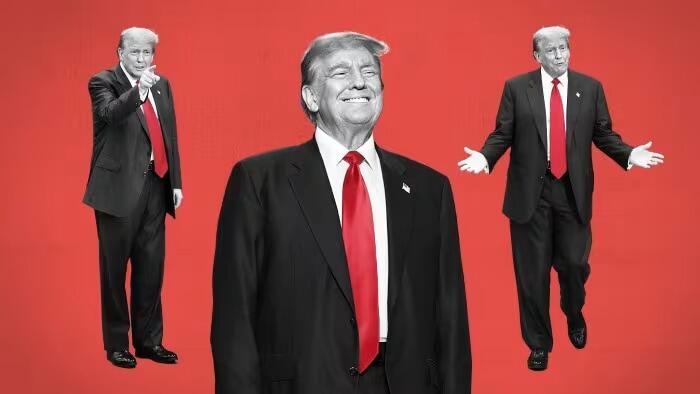In the political climate of America, particularly as the 2024 elections approach, anxiety among Democrats has reached a boiling point. After spending nearly a decade steeped in narratives that equate their political adversaries with fascism, the prospect of a Trump victory reignites fears of an impending authoritarian regime. This has led to widespread reactions among leftists, who are exploring extreme measures, including emigration or even calls for revolution. Recent polls suggest Trump’s potential resurgence, creating a sense of urgency that has prompted an introspective yet misguided examination of the political landscape, as reflected in various media outlets like The New Yorker, which warns of Trump’s likelihood of winning.
The New Yorker, in its in-depth analyses, positions change as a perilous drift toward the right, lamenting this political shift without critically engaging with its roots. It paints Kamala Harris as a virtuous figure, disregarding broader American sentiment, which has been increasingly resistant to progressive ideals. Instead of addressing the underlying factors driving conservative movements—such as dissatisfaction with immigration policies and crime rates—leftist rhetoric defaults to accusations of racism and xenophobia. The magazine’s examination of Brexit highlights an aversion to traditional alliances fueled by mass immigration, attributing the rise in nationalism solely to emotional reactions rather than acknowledging the failures of neoliberal policies and governance.
The left’s inability to introspectively address its own role in fostering right-wing sentiment comes from a deep-seated arrogance. By dehumanizing opponents and refusing to acknowledge the majority’s desires, they provoke the very movements they fear. Their self-righteous outlook leads to extreme narratives that portray Trump as an existential threat, likening him to cancer or tyranny, which in turn stokes paranoia within progressive circles. This fear often manifests in violent rhetoric and attempts to discredit those within conservative populism, blaming them for any civil unrest that may arise—a projection of their insecurities about a potential reckoning for their past actions and strategies, particularly under the Biden administration.
As Democrats grapple with the fear of a Trump administration, the implications of such a victory are portrayed dramatically in left-leaning media. They envision a second Trump term as a departure from the democratic norms they’ve defended, claiming he would suppress dissent and embolden paramilitary organizations. This sentiment reinforces the polarization already gripping the nation, wherein Trump is labeled as a figure of vengeance and chaos, fostering a narrative of impending doom that paradoxically overlooks his first term’s balance between dismantling and restraint.
The recurring anxiety on the left regarding a potential Trump administration hints at deeper culpability—a recognition of the current political discontent stemming from progressive governance. The ensuing chaos, a product of their own making through policies on civil liberties, economic management, and aggressive cultural reforms, triggers fears of accountability. Many leftists are openly considering emigration, citing dissent against perceived fascism, a misguided notion that does not recognize the broader disillusionment within their ideological foundation among the general populace.
With the approach of the elections, it becomes clear that the left is losing grip on both public support and international credibility, as similar sentiments echo across Europe. Their fears manifest as they begin to understand that their actions may lead not to a benign opposition but an empowered backlash from millions dissatisfied with the trajectory of progressive policies. By dismissing their opposition and failing to consider the validity of concerns regarding governance, leftists risk facing a reckoning that may be more consequential than they anticipate. The political terrain is more a product of their actions than any singular figure, revealing an uncomfortable truth: those who engage in the reckless destruction of societal norms will ultimately have to confront the phenomena they deem as threats.

